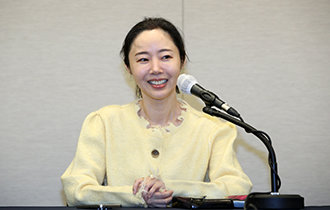Industrial Hollowing-Out Progressing Rapidly
Industrial Hollowing-Out Progressing Rapidly
Posted February. 06, 2004 22:57,
Bank of Korea (BOK) Governor Park Seung warned on Friday, Hollowing-out of the Korean industry is progressing very rapidly. He also said that a continuous fall in the won-dollar exchange rate is not desirable, hinting for the intervention in the currency market.
The U.S. and Japan experienced industrial hollowing-out in the 1960s and 1980s, but the shock was cushioned by their protective trade policies, the governor told reporters after the meeting of the Monetary Policy Committee. But, we are in a different position in that we support an open economy policy and face Chinas low-cost labor.
He analyzed that those are the main reason behind the current economic difficulties, such as surging exports and plunging domestic demand, a slow recovery in the economic sentiment, and jobless recovery.
We should endure hardship to survive in this era of global competition. Management should expand job security, and labor should control the demand of wage hikes and strikes. The government should vigorously create more jobs, said the governor.
He also expressed concerns that it might take longer than expected for the real economic sentiment to improve, even though the Korean economy is picking up steam.
He projected that the BOK will successfully maintain the inflation rate of three percent. But due to unstable raw material prices, rising wages, and utilities costs, the BOK should closely watch inflation in the second half of this year, he added.
We should consider the supply and demand in the foreign exchange market, said Governor Park. However, continuous fall in the won-dollar exchange rate will hurt the Korean export.
Experts in the foreign exchange market interpreted that the BOK will respond to the falling exchange rate together with the Ministry of Finance and Economy.
Upon the governors remarks, the won-dollar exchange rate on Friday made a small increase, closing at 1168.10 won.
The dollar rose today because the long selling streak of the dollar has been turned as it rallied in foreign exchange markets, said Ha Jong-su, a director at Korea Exchange Bank. But since the supply of the dollar outweighs the demand, the dollar will continue its downward trend.
Meanwhile, the Monetary Policy Committee of the BOK left the call rate unchanged at 3.75 percent. The rate has been at this level since last July when it was down from four percent.
Keuk-In Bae bae2150@donga.com







